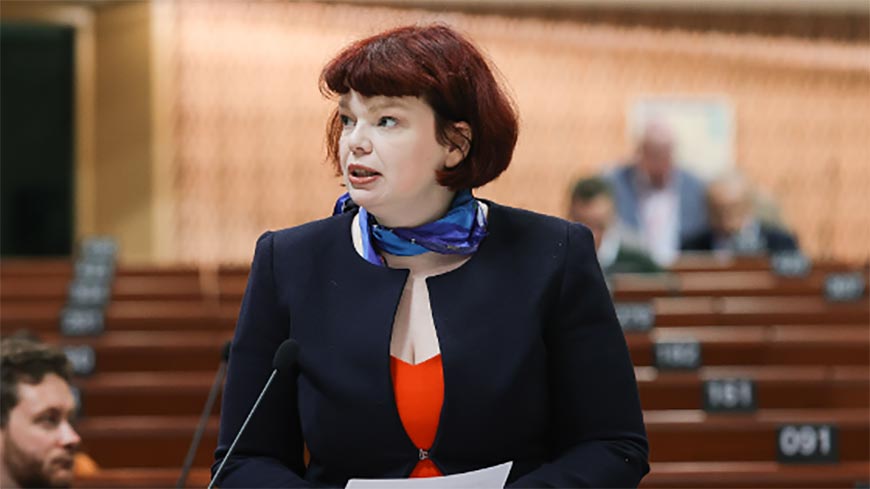The Parliamentary Assembly of the Council of Europe (PACE) has expressed deep concern at “the disproportionately harsh treatment” faced by Julian Assange and said this has had a “dangerous chilling effect” which undermines the protection of journalists and whistleblowers around the world.
Approving a resolution based on a report by Thórhildur Sunna Ævarsdóttir (Iceland, SOC), the Assembly said Mr Assange’s treatment warranted his designation as a “political prisoner” under a definition it agreed in 2012, citing the severe charges brought against him by the United States of America, exposing him to possible life imprisonment, combined with his conviction under the US Espionage Act “for what was – in essence – newsgathering and publishing”.
The Assembly – which brings together parliamentarians from the 46 nations of the Council of Europe – also called on the US to investigate the alleged war crimes and human rights violations disclosed by him and Wikileaks. Its failure to do so, combined with the harsh treatment of Mr Assange and Ms Manning, creates a perception that the US government’s purpose in prosecuting Mr Assange was “to hide the wrongdoing of state agents rather than to protect national security”.
The Assembly called on the US, a Council of Europe observer state, to “urgently reform” the 1917 Espionage Act to exclude its application to publishers, journalists and whistleblowers who disclose classified information with the intent to raise public awareness of serious crimes.
For their part, the UK authorities had failed to effectively protect Assange’s freedom of expression and right to liberty, the parliamentarians said, “exposing him to lengthy detention in a high-security prison despite the political nature of the most severe charges against him”. His detention far exceeded the reasonable length acceptable for extradition, they said.
The Assembly was debating Mr Assange’s case after his testimony yesterday to a hearing of its Committee on Legal Affairs and Human Rights, his first public comments since his release from detention in the UK four months ago. Mr Assange, together with his wife Stella, stayed on in Strasbourg after the hearing to watch today’s plenary debate from the public gallery.


